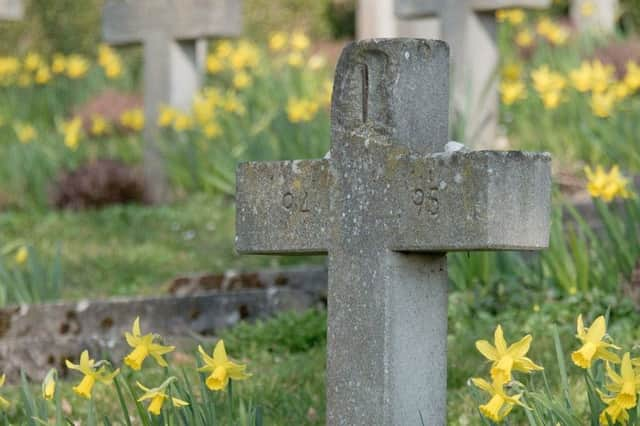Where there's (not) a will...succession of changes could have big impact


Under the Succession (Scotland) Act 2016, which comes into force on 1 November 2016, unless a will expressly states otherwise, divorce or dissolution of a civil partnership will automatically revoke any provision in a will for the ex-spouse/civil partner.
Yet further proposals by the Scottish Law Commission (SLC) as part of the two-stage consultation on reform of succession law could affect a far larger number of people. The proposed new rules relate to the division of an estate where an individual dies intestate, the rights of children, spouses and civil partners not to be disinherited, and new rights for unmarried (cohabiting) partners.
Advertisement
Hide AdAdvertisement
Hide AdThe most recent Scottish census showed 237,000 unmarried couples living together in 2011. While the Family Law (Scotland) Act 2006 gave cohabitants limited rights on separation and death, in the absence of a will the surviving cohabitant can only seek a share of their late partner’s estate by applying for financial provision to the Scottish courts within six months of their death.
The SLC has recommended this period be extended to one year, and that cohabitants should be able to claim financial provision even if their late partner left a will that did not make provision for them. These changes could both delay the administration of an estate and also increase costs if a court action is raised by the surviving cohabitant.
A further change proposed by the SLC concerns the question of protection from disinheritance. In Scotland, the concept of “legal rights” prevents a testator from disinheriting a spouse/civil partner or children. Put simply, a surviving spouse/civil partner and children have an automatic claim to part of the estate, irrespective of whether the testator dies with or without a will, and regardless of whether the testator has made provision for them in their will. The extent of the legal rights depends on whether the deceased was survived by a spouse/civil partner and/or children.
Currently, legal rights can only be claimed from the deceased’s moveable estate. However, with a view to simplifying the position, the SLC proposes to replace legal rights with a “legal share” which, controversially, would apply to all the property, including land and buildings.
Given that the deceased’s house is likely to constitute the most valuable asset, these changes, if implemented, could force the sale of assets to satisfy a legal shares claim, although the SLC has recommended that it should be possible to apply to the court for the legal share to be paid in instalments to avoid this situation.
The proposed changes and those that come into force next month should prompt those with and without wills to review their personal circumstances and ensure the provisions in place reflect their wishes. Cohabitants without a will should give serious consideration to having one drawn up to ensure that their wishes are exercised following their death.
Although the second consultation is ongoing and succession law does not feature on the Scottish Government’s legislative programme for 2016 -17, it is anticipated that further changes will be implemented in the future.
Susanne Beveridge is a Partner and Nicola Neal is a Senior Solicitor with Brodies LLP.